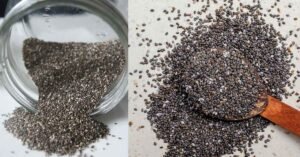
Why does my jaw hurt? People ask this question when feeling Jaw pain which is a frustrating experience. It affects one’s capacity to chew, talk, and even sleep well. Knowing what is causing the pain—whether it is a severe aching or a mild ache—is crucial to finding relief. This post will discuss the typical causes of jaw discomfort, provide easy at-home treatments, and address commonly asked issues to aid those who are dealing with this issue.
Why Does My Jaw Hurt?-Reasons:
1. Temporomandibular Joint Disorder (TMJ)
The jaw and skull are joined by the temporomandibular joint. Any issues in this joint, known as TMJ disorder that can cause pain or stiffness in the jaw. This can occur for the reason of injuries, stress, or arthritis, and is a common reason people ask, “Why does my jaw hurt?”
Symptoms of TMJ disorder:
- Jaw pain or tenderness
- Clicking or popping sounds when moving the jaw
- Difficulty chewing
- Pain that spreads to the ear or neck
2. Teeth Grinding (Bruxism):
Teeth grinding, or bruxism, is another common cause of jaw pain. Many people grind their teeth during sleep, which puts pressure on the muscles and joints in the jaw. This might cause dental damage and strained muscles over time.
Symptoms of teeth grinding:
- Jaw pain, especially in the morning
- Headaches
- Broken teeth
- Pain in the ears

3. Dental Problems:
Dental issues like cavities, abscesses, and gum infections are examples of dental conditions that can produce discomfort that radiates to the jaw. Anybody experiencing jaw pain in addition to sore or swollen gums, tooth pain, or an abscess appears to have a dental issue at its core.
4. Sinus Infections:
Jaw discomfort may be brought on by a sinus infection or sinusitis, particularly if the infection results in inflammation close to the upper jaw. Speaking or eating might be difficult when nasal pressure is present in the jaw due to congested or enlarged sinuses.
5. Arthritis
Jaw stiffness and discomfort can be caused by arthritis, especially rheumatoid arthritis or osteoarthritis. Those who are elderly or have a history of joint issues are more likely to experience this.
Home Remedies for Jaw Pain:
If the jaw pain is mild or moderate, one can find relief at home using these simple remedies:
1. Apply a Warm or Cold Compress A warm compress can help relax the jaw muscles, while a cold compress can reduce swelling. Apply either for 10-15 minutes to the affected area a few times a day.
2. Gentle Jaw Exercises Doing gentle stretching exercises can help to reduce pain in the jaw. Slowly open and close the mouth, or move the jaw from side to side to improve flexibility and reduce stiffness.
3. Over-the-Counter Pain Relievers Non-prescription pain relievers like ibuprofen or acetaminophen can help reduce inflammation and provide relief from jaw pain.
4. Avoid Hard or Chewy Foods If chewing increases pain, try eating soft foods that don’t require much effort. Don’t eat the foods like nuts, gum, or hard candies that could make the pain worse.
5. Practice Stress Management If jaw pain is related to stress or anxiety, consider relaxation techniques as for example meditation, yoga, or deep breathing exercises to reduce uncomfortableness in the body, including the muscles around the jaw.
When to See a Doctor
If the jaw pain is severe, lasts for more than a week, or is accompanied by other symptoms such as fever, swelling, or difficulty opening your mouth, one should visit a doctor or dentist.

Conclusion
Jaw pain is a common issue with a variety of causes, from TMJ disorders to sinus infections. While many cases of jaw pain can be treated with simple home remedies, others may require medical intervention, especially if the pain persists. By understanding the root cause of your discomfort, you can find the right solution and enjoy a pain-free life.
Make sure to monitor your symptoms and consult a healthcare provider if your jaw pain worsens or lasts for an extended period. Proper care can prevent more serious complications and help you return to your normal activities without discomfort.
Frequently Asked Questions About Jaw Pain :
1. Why does my jaw hurt when I chew?
Jaw pain during chewing can result from TMJ disorder, arthritis, or teeth grinding. These conditions strain the muscles and joints in the jaw, making eating uncomfortable.
2. Can stress cause jaw pain?
Yes, stress can lead to jaw pain, especially if you clench or grind your teeth when you’re feeling anxious or tense. This habit puts strain on the muscles around the jaw and can lead to discomfort.
3. What are the signs of a TMJ disorder?
The most common signs of TMJ disorder include jaw pain, clicking or popping sounds, limited jaw movement, and pain that extends to the ear or neck.
4. How can I relieve jaw pain at home?
You can relieve mild jaw pain by using warm or cold compresses, doing jaw exercises, taking over-the-counter pain medication, eating soft foods, and practicing stress-relief techniques.
5. Can jaw pain be related to a tooth infection?
Yes, a tooth infection, such as an abscess, can cause jaw pain. If the infection spreads to the jawbone, it can lead to swelling and intense discomfort.
6. How long does jaw pain last?
Jaw pain can last anywhere from a few hours to several weeks, depending on the cause. If the pain is due to a temporary issue like teeth grinding, it may go away with rest and treatment. However, more chronic conditions like TMJ disorder or arthritis may require long-term care.
7. Can a sinus infection cause jaw pain?
Yes, a sinus infection can cause pain in the upper jaw due to the pressure from swollen sinuses. This is often felt around the cheeks and upper teeth.
References
- American Dental Association (ADA)
- Mayo Clinic
- WebMD
- Cleveland Clinic














